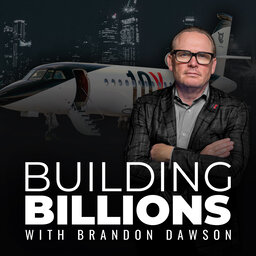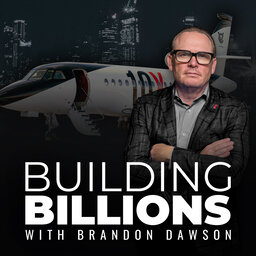EP 206 | From Drug Addict To A Nine Figure Exit with Eric Spofford
On this episode of Building Billions, I sat down with nine figure entrepreneur Eric Spofford. We dive deep into his struggles with drug addiction and how he turned his rock bottom moments into a business that helped tens of thousands of individuals battling with addiction.
Eric Spofford is the CEO of Spofford Enterprises. He is an entrepreneur, speaker, coach, recovered drug addict, and student of the game. At 23, inspired by his own struggles with addiction, Eric founded and operated one of the largest addiction treatment organizations in New England, which he sold for nine figures in 2021. Eric is also a seasoned real estate investor and developer.
Spofford Enterprises oversees investments in commercial and multifamily real estate, private equity funds, a media company, and behavioral healthcare businesses, among other innovative ventures. Eric has numerous accolades to his name, including testifying before the U.S. Senate, being awarded Young Entrepreneur of the Year by the U.S. Small Business Administration, and becoming a published author.
His success and entrepreneurial determination led him to a nine figure exit. We go through the struggles, loneliness, and low moments that shaped him into the multi million dollar entrepreneur he is today.
In 1 playlist(s)
Building Billions with Brandon Dawson
Welcome to Building Billions with Brandon Dawson. This podcast will be taking you on the journey of …Social links
Follow podcast
Recent clips

The #1 Skill That Made Me Hundreds of Millions
13:30

Reinvent Yourself: 4 Strategies to Transform Your Life and Business
16:54

Let Go to Level Up: How I Built Hundreds of Millions
12:41
 Building Billions with Brandon Dawson
Building Billions with Brandon Dawson